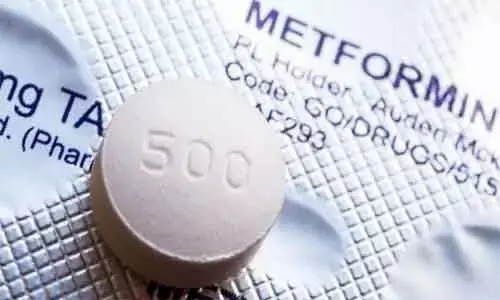- Home
- Medical news & Guidelines
- Anesthesiology
- Cardiology and CTVS
- Critical Care
- Dentistry
- Dermatology
- Diabetes and Endocrinology
- ENT
- Gastroenterology
- Medicine
- Nephrology
- Neurology
- Obstretics-Gynaecology
- Oncology
- Ophthalmology
- Orthopaedics
- Pediatrics-Neonatology
- Psychiatry
- Pulmonology
- Radiology
- Surgery
- Urology
- Laboratory Medicine
- Diet
- Nursing
- Paramedical
- Physiotherapy
- Health news
- Fact Check
- Bone Health Fact Check
- Brain Health Fact Check
- Cancer Related Fact Check
- Child Care Fact Check
- Dental and oral health fact check
- Diabetes and metabolic health fact check
- Diet and Nutrition Fact Check
- Eye and ENT Care Fact Check
- Fitness fact check
- Gut health fact check
- Heart health fact check
- Kidney health fact check
- Medical education fact check
- Men's health fact check
- Respiratory fact check
- Skin and hair care fact check
- Vaccine and Immunization fact check
- Women's health fact check
- AYUSH
- State News
- Andaman and Nicobar Islands
- Andhra Pradesh
- Arunachal Pradesh
- Assam
- Bihar
- Chandigarh
- Chattisgarh
- Dadra and Nagar Haveli
- Daman and Diu
- Delhi
- Goa
- Gujarat
- Haryana
- Himachal Pradesh
- Jammu & Kashmir
- Jharkhand
- Karnataka
- Kerala
- Ladakh
- Lakshadweep
- Madhya Pradesh
- Maharashtra
- Manipur
- Meghalaya
- Mizoram
- Nagaland
- Odisha
- Puducherry
- Punjab
- Rajasthan
- Sikkim
- Tamil Nadu
- Telangana
- Tripura
- Uttar Pradesh
- Uttrakhand
- West Bengal
- Medical Education
- Industry
NDMA Levels in Metformin not significant: FDA

The Food and Drug Administration (FDA) has announced that the levels of N-Nitrosodimethylamine (NDMA) in some metformin products approved for distribution in the US ranged from "not detectable to low," based on laboratory test results.
N-nitrosodimethylamine (NDMA is a probable human carcinogen. High levels in other drugs, including some angiotensin II receptor blockers and ranitidine, have led to recalls.
Metformin, a biguanide, is indicated to improve glycemic control in patients with type 2 diabetes, as an adjunct to diet and exercise. Patients should continue taking metformin to keep their diabetes under control. It could be dangerous for patients with this serious condition to stop taking their metformin without first talking to their health care professionals. It is the first-line treatment of not only diabetes but Prediabetes as well.
The investigation into metformin products produced in the US was prompted by reports of low NDMA levels found in the antidiabetic agent outside of the US. To date, the FDA has not recommended a recall of metformin products in the US due to the relatively low levels of NDMA identified in testing.
The agency also said it has not identified NDMA in metformin active pharmaceutical ingredient.
The only NDMA FDA found was in six lots of Actavis' Rx Metformin 1000mg ER and Rx Metformin 500mg ER, but the levels were 0.01-0.02 micrograms-mcg/tablet. FDA says that consuming up to the acceptable daily intake limit, 0.096 micrograms, of NDMA per day is considered reasonably safe for human ingestion based on lifetime exposure.
"Patients should continue taking metformin to keep their diabetes under control. It could be dangerous for patients with this serious condition to stop taking their metformin without first talking to their health care professionals," the agency said. To date, FDA has not recommended metformin recalls in the US.
According to the Agency, these levels were "similar to the levels you would expect to be exposed to if you ate foods like grilled or smoked meats." The FDA posted the metformin test results on its website (see second link below). It said that when detectable, the NDMA levels in metformin are "similar to the levels you would expect to be exposed to if you ate foods like grilled or smoked meats." Accordingly, no recalls are recommended. The agency says it will continue to monitor metformin for NDMA.
For further reference log on to: fda.gov.
Dr Kamal Kant Kohli-MBBS, DTCD- a chest specialist with more than 30 years of practice and a flair for writing clinical articles, Dr Kamal Kant Kohli joined Medical Dialogues as a Chief Editor of Medical News. Besides writing articles, as an editor, he proofreads and verifies all the medical content published on Medical Dialogues including those coming from journals, studies,medical conferences,guidelines etc. Email: drkohli@medicaldialogues.in. Contact no. 011-43720751


